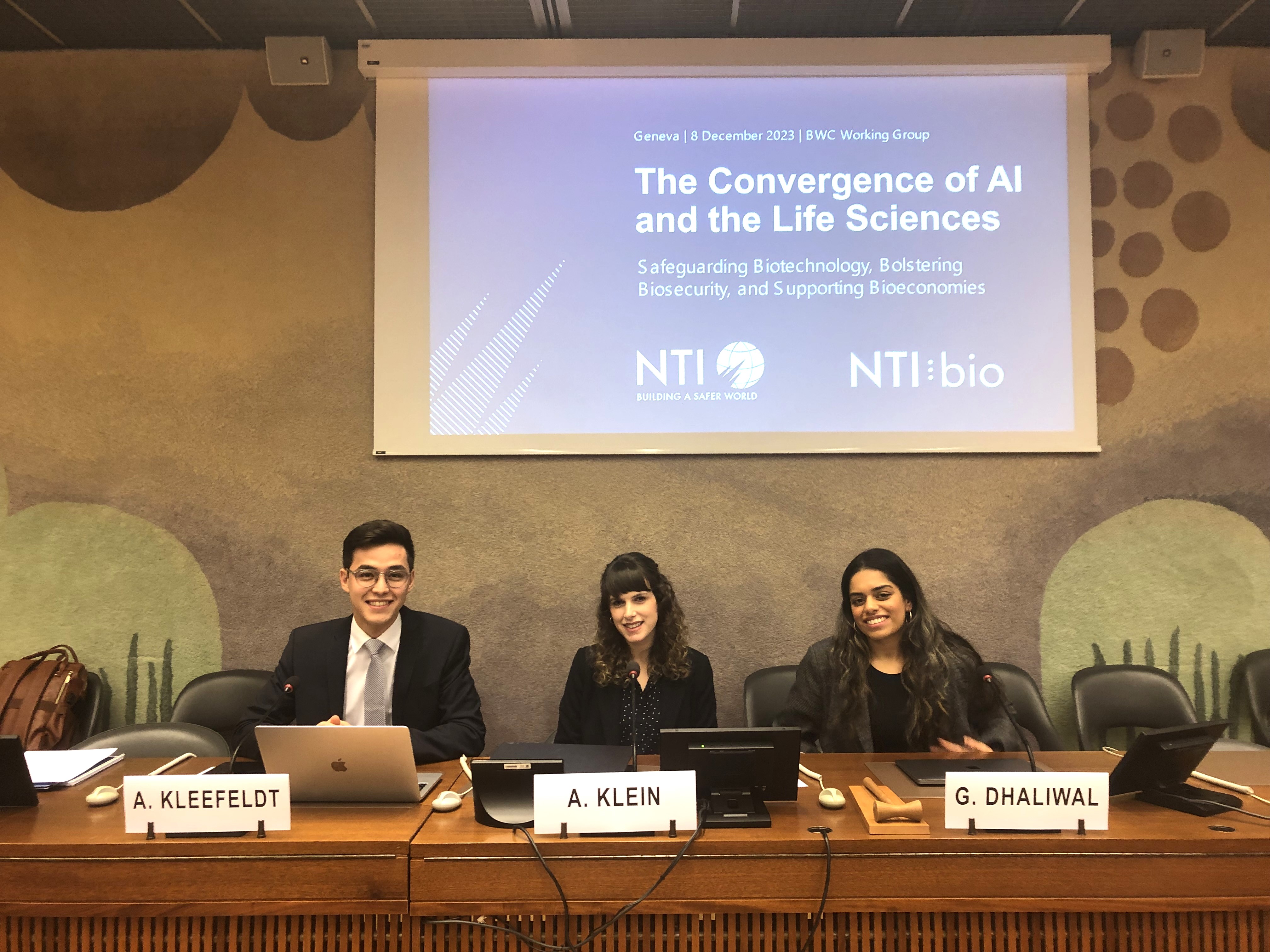A team including Gurpreet Dhaliwal, Askar Kleefeldt and CSER's Alex Klein has won the 2023 Next Generation for Biosecurity Competition.
The team received travel support to attend the Biological Weapons Convention Meeting of States Parties in Geneva, Switzerland. They presented on their paper during an NTI side event, “The Convergence of AI and the Life Sciences: Safeguarding Biotechnology, Bolstering Biosecurity, and Supporting Bioeconomies” on Friday, December 8, 2023, at 1:15 – 2:45PM Central European Standard Time.

Winning paper: "Biosecurity-by-Design to Safeguard Emerging Bioeconomies"
Executive Summary
Rapid advances in bioscience research have the potential to drive sustainable economic development and growth. However, the safe and thoughtful scale-up of biotechnology is essential to mitigate potential risks. We conducted a literature review, consulted subject matter experts, and analysed data from the Global Health Security Index (GHSI) to propose a set of policy approaches to reinforce biosecurity
norms at every stage of research and development (R&D). We recommend a biosecurity-by-design approach, which integrates biosecurity into the design of research projects and across the R&D pipeline without hampering innovation. First, we suggest incorporating biosecurity-by-design as part of a culture of responsibility among scientific communities. Fostering a culture of responsibility
has been a consistent biosecurity theme over recent decades, and focusing efforts here could propagate a global and standardised code of conduct for scientists as new bioeconomies emerge and grow. Second, targeting the private sector, we encourage using market levers to incentivise biosecurity in the design of products.
This should ensure biosecurity is built into the initial stages of product conceptualisation and becomes an integral part of innovation. Finally, we encourage leveraging existing international venues, such as the Biological Weapons Convention (BWC), to target governments globally. This aims to promote international norms and values among stakeholders involved in bioeconomy development. Taking this broad view is essential to capture the entire research pipeline and include the various stakeholders involved in biosecurity, from individual scientists to private industry to governments. Biosecurity must be seen as an intrinsic part of sustainable innovation (as opposed to a threat to growth) and a critical component of a prosperous global bioeconomy.